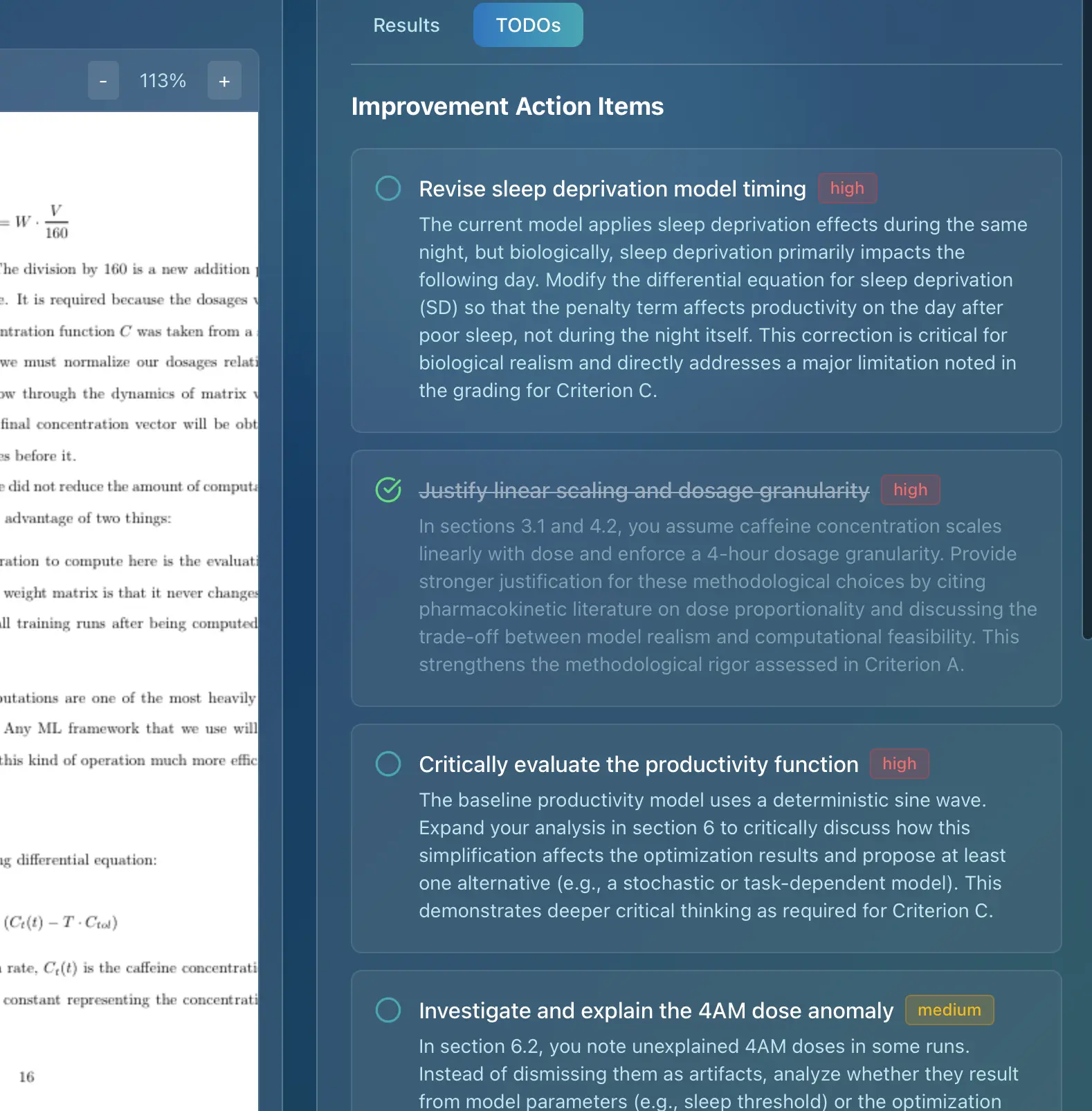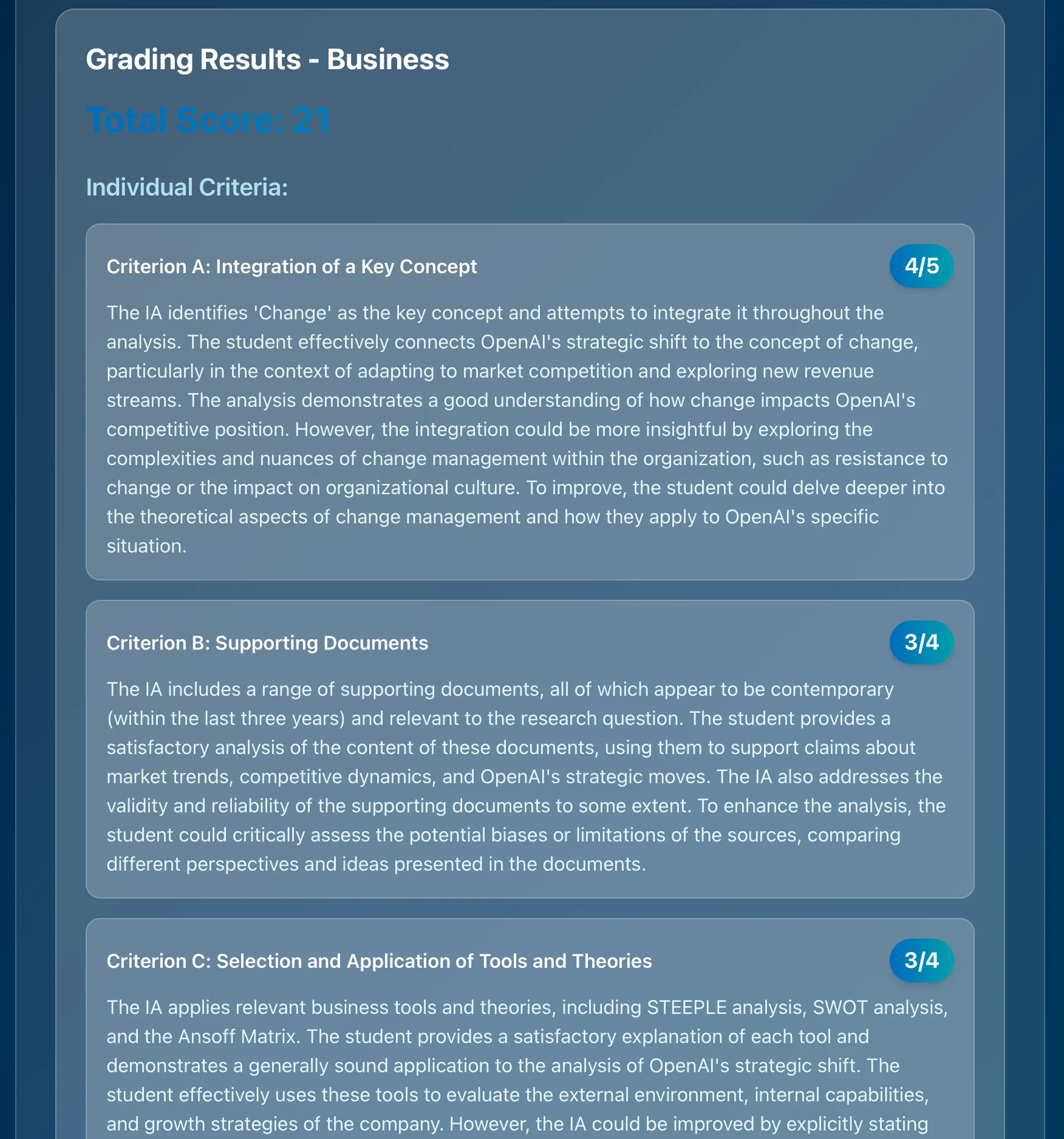The Extended Essay Reflection Sessions: What to Expect
The Extended Essay (EE) is a cornerstone of the International Baccalaureate (IB) Diploma Programme, and reflection sessions are integral to its successful completion. These sessions, often held with your supervisor, are designed to guide you through the research process, help you refine your arguments, and ultimately, improve the quality of your essay. In this comprehensive guide, we'll delve into what you can expect from these sessions, offering practical advice and strategies to make the most of them. Whether you're just starting your EE journey or nearing the final submission, understanding the purpose and dynamics of reflection sessions is crucial for achieving a high score. This guide will equip you with the knowledge and confidence to navigate these sessions effectively and produce a stellar Extended Essay.
Understanding the Purpose of Extended Essay Reflection Sessions
Reflection sessions are more than just meetings with your supervisor; they are structured opportunities for you to critically evaluate your progress, identify areas for improvement, and refine your research question and methodology. The IB emphasizes the importance of reflection throughout the EE process, and these sessions are designed to facilitate that.
- Guidance and Support: Your supervisor is there to provide guidance, offer suggestions, and help you stay on track. They can help you navigate challenges, refine your research question, and develop a strong argument.
- Critical Evaluation: Reflection sessions encourage you to critically evaluate your own work. You'll be asked to explain your research process, justify your choices, and identify any limitations in your approach.
- Refinement and Improvement: Based on the feedback you receive, you can refine your research question, improve your methodology, and strengthen your arguments. This iterative process is essential for producing a high-quality essay.
- Meeting IB Requirements: The IB requires evidence of reflection throughout the EE process. Attending and actively participating in reflection sessions demonstrates your commitment to meeting these requirements.
Struggling with IB Assessments?
Get instant, detailed feedback on your work with AI that understands IB criteria.

Preparing for Your Reflection Sessions: A Step-by-Step Guide
Effective reflection sessions require preparation. Here's a step-by-step guide to help you make the most of each meeting:
- Review Your Progress: Before each session, thoroughly review your work to date. Identify areas where you've made progress and areas where you're facing challenges.
- Prepare Specific Questions: Don't go into the session without a clear agenda. Prepare a list of specific questions you want to ask your supervisor. These questions should be focused and address specific challenges you're facing. For example:
- "I'm struggling to find primary sources for my research question. Do you have any suggestions?"
- "I'm not sure if my methodology is appropriate for my research question. Can you provide feedback?"
- "I'm having trouble structuring my essay. Can you help me develop a clear outline?"
- Bring Relevant Materials: Bring all relevant materials to the session, including your research question, outline, drafts, and any sources you've consulted.
- Be Open to Feedback: Be open to receiving feedback from your supervisor, even if it's critical. Remember, they're there to help you improve your work.
- Take Notes: Take detailed notes during the session. This will help you remember the feedback you received and implement it in your work.
- Document the Session: Keep a record of each reflection session, including the date, attendees, topics discussed, and action items. This documentation will be valuable for your final reflection statement.
What to Expect During the Reflection Session: A Typical Agenda
While each reflection session will be unique, a typical agenda might include the following:
- Review of Progress: Your supervisor will likely start by asking you to summarize your progress since the last session.
- Discussion of Challenges: You'll have the opportunity to discuss any challenges you're facing and ask for guidance.
- Feedback on Your Work: Your supervisor will provide feedback on your research question, methodology, outline, and drafts.
- Action Planning: You'll work with your supervisor to develop an action plan for the next steps in your research process.
- Documentation: You'll document the session, including the topics discussed, feedback received, and action items.
Common Challenges/Mistakes in Reflection Sessions and How to Avoid Them
Students often encounter challenges during reflection sessions. Here are some common mistakes and how to avoid them:
- Lack of Preparation: Failing to prepare for the session can lead to unproductive discussions and missed opportunities for feedback. Solution: Follow the step-by-step guide outlined above to prepare for each session.
- Being Defensive: Getting defensive when receiving feedback can hinder your progress. Solution: Remember that your supervisor is there to help you. Be open to their suggestions and view them as opportunities for improvement.
- Not Asking Questions: Failing to ask questions can leave you feeling confused and unsure of how to proceed. Solution: Prepare a list of specific questions you want to ask your supervisor.
- Not Taking Notes: Forgetting the feedback you received can lead to repeated mistakes. Solution: Take detailed notes during the session and review them afterwards.
- Not Documenting the Session: Failing to document the session can make it difficult to write your final reflection statement. Solution: Keep a record of each reflection session, including the date, attendees, topics discussed, and action items.
- Ignoring Feedback: Disregarding the feedback provided by your supervisor is a missed opportunity to improve your EE. Solution: Carefully consider all feedback and implement it where appropriate. If you disagree with a suggestion, discuss it further with your supervisor to understand their reasoning.
Pro Tip: Get AI-Powered Grading
Stop second-guessing your grades. Get instant feedback aligned with official IB rubrics.

Advanced Tips/Strategies for Maximizing Your Reflection Sessions
To truly excel in your Extended Essay, consider these advanced strategies for reflection sessions:
- Self-Reflection Before the Session: Before meeting with your supervisor, take time for deep self-reflection. Consider what you've learned, what surprised you, and what you would do differently if you could start over. This will allow you to have more meaningful discussions with your supervisor.
- Focus on the "Why": Don't just focus on the "what" and "how" of your research. Explore the "why" behind your choices. Why did you choose this research question? Why did you select this methodology? Why are your findings significant?
- Connect to Theory: Try to connect your research to relevant theories and concepts. This will demonstrate a deeper understanding of your topic and strengthen your analysis.
- Anticipate Counterarguments: Consider potential counterarguments to your thesis and be prepared to address them. This will demonstrate critical thinking and strengthen your overall argument.
- Seek Feedback from Multiple Sources: While your supervisor is your primary source of feedback, consider seeking feedback from other teachers, classmates, or experts in your field. This can provide you with a broader perspective and help you identify blind spots.
- Use a Reflection Journal: Maintain a reflection journal throughout the EE process. This will help you track your progress, identify patterns, and gain insights into your own learning.
Technology and Modern Assessment: The Role of AI in Extended Essay Feedback
The landscape of education is constantly evolving, and technology plays an increasingly important role in assessment. AI-powered tools are transforming the way teachers provide feedback on student work, including the IB Extended Essay.
AI grading assistants, like Marksy, offer several benefits for both students and teachers:
- Consistent and Objective Feedback: AI tools use official IB rubrics to provide consistent and objective feedback, ensuring fairness and accuracy.
- Detailed Criterion-by-Criterion Analysis: Marksy provides detailed feedback on each criterion of the IB rubric, helping students understand exactly how their work is being assessed.
- Personalized Suggestions for Improvement: AI tools can provide personalized suggestions for improvement, helping students target their efforts and maximize their learning.
- Time-Saving for Teachers: AI grading assistants can save teachers significant time by automating the grading process, allowing them to focus on providing more individualized support to students.
Marksy, as a leading AI grading assistant, helps teachers provide consistent, detailed feedback on IB assessments, including the Extended Essay. By leveraging the power of AI, Marksy ensures that feedback is aligned with official IB criteria, providing students with a clear understanding of their strengths and weaknesses. This allows students to focus on areas where they need the most improvement, ultimately leading to better results.
The use of AI in assessment is not meant to replace human interaction, but rather to enhance it. AI tools can provide a valuable supplement to traditional feedback methods, freeing up teachers to focus on providing more personalized support and guidance to students.
Conclusion: Mastering the Extended Essay Reflection Sessions
The Extended Essay reflection sessions are a vital part of the IB Diploma Programme. By understanding their purpose, preparing effectively, and actively participating, you can make the most of these sessions and produce a high-quality essay. Remember to be open to feedback, ask questions, and document your progress. Embrace the iterative nature of the research process and use reflection sessions as opportunities to refine your thinking and strengthen your arguments. And remember, tools like Marksy can provide valuable support throughout the process, offering detailed feedback and personalized suggestions for improvement.
Ready to take your Extended Essay to the next level? Try Marksy for free today and experience the power of AI-driven feedback! See how our AI grading assistant can help you understand the IB rubrics, identify areas for improvement, and achieve your best possible score. Sign up for a free trial now and unlock your full potential!